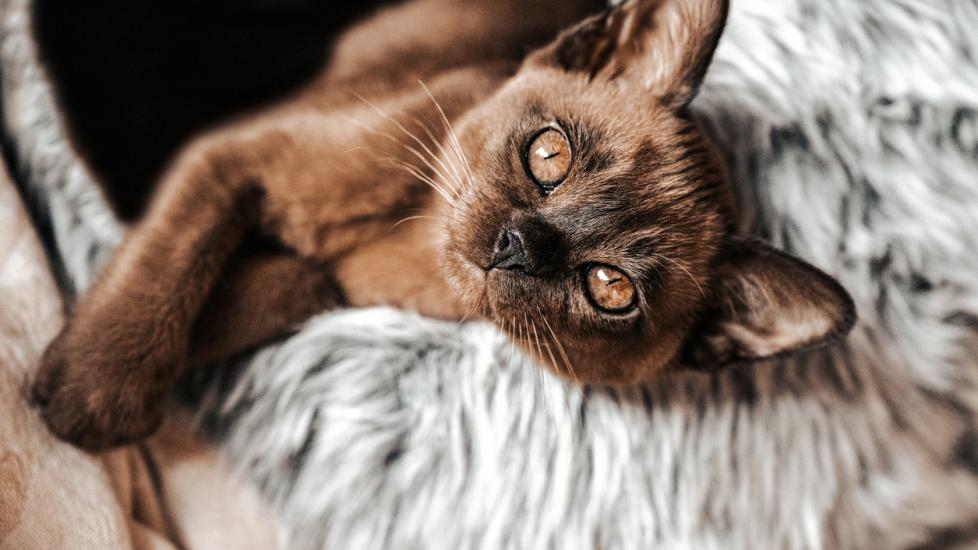Introduction: The Burmese is a domestic cat that originated in Myanmar (formerly known as Burma). It has become one of the most popular breeds due to its affectionate nature, intelligence, and striking appearance.
Origin: The modern-day Burmese was developed from the naturally occurring Copper Cat found in Southeast Asia, particularly in Myanmar. Breeders began selectively breeding these cats in the early 20th century with the goal of preserving their unique traits.
Physical Characteristics: These cats are characterized by their compact bodies, short legs, round faces, large eyes, and velvety coats. They come in a variety of colors, but the original Siamese-colored point pattern remains common among pedigree lines.
Temperament: Known for being very social and loving pets, Burmese typically form strong bonds with their human companions. They enjoy interacting with people and can be quite playful at times.
Health Considerations: Like all purebred animals, the Burmese may have certain health issues associated with their genetics. Some concerns include obesity if not given proper exercise and diet, dental problems due to their flat face structure, and potentially some genetic eye disorders. Regular checkups with a veterinarian are recommended.
Grooming Needs: Because they have a relatively short coat, grooming requirements for Burmese cats are minimal compared to longhaired breeds. Brushing once or twice weekly will help remove loose hair and keep their fur looking healthy.
Exercise Requirements: While not overly active, Burmese do benefit from daily playtime and mental stimulation. Interactive toys and puzzle feeders can provide both physical activity and intellectual challenges.
Living Conditions: This adaptable breed can thrive in apartments or homes provided there is enough attention paid to them. A quiet environment where they feel secure is ideal, although they can adjust well to households with children if introduced properly.
Suitability for Families: With their friendly disposition and gentle mannerisms, Burmese make excellent family pets. Their affectionate nature makes them especially appealing to those seeking a lap cat who enjoys cuddling up close.
Legality and Availability: As a domesticated animal, owning a Burmese cat is generally legal worldwide; however, regulations regarding importation into different countries should be checked before acquiring one internationally. Locally bred kittens may be available through reputable breeders or rescue organizations specializing in this breed.
Rescue and Adoption: If you prefer adoption over purchasing from a breeder, consider contacting local cat rescues or shelters. Sometimes, mixed-breed cats with similar characteristics to purebreds like the Burmese can also be wonderful companions.
Remember that every individual cat has its own personality and temperament regardless of breed. Researching thoroughly and finding a responsible source for your new feline friend is key to ensuring a happy addition to your household.
